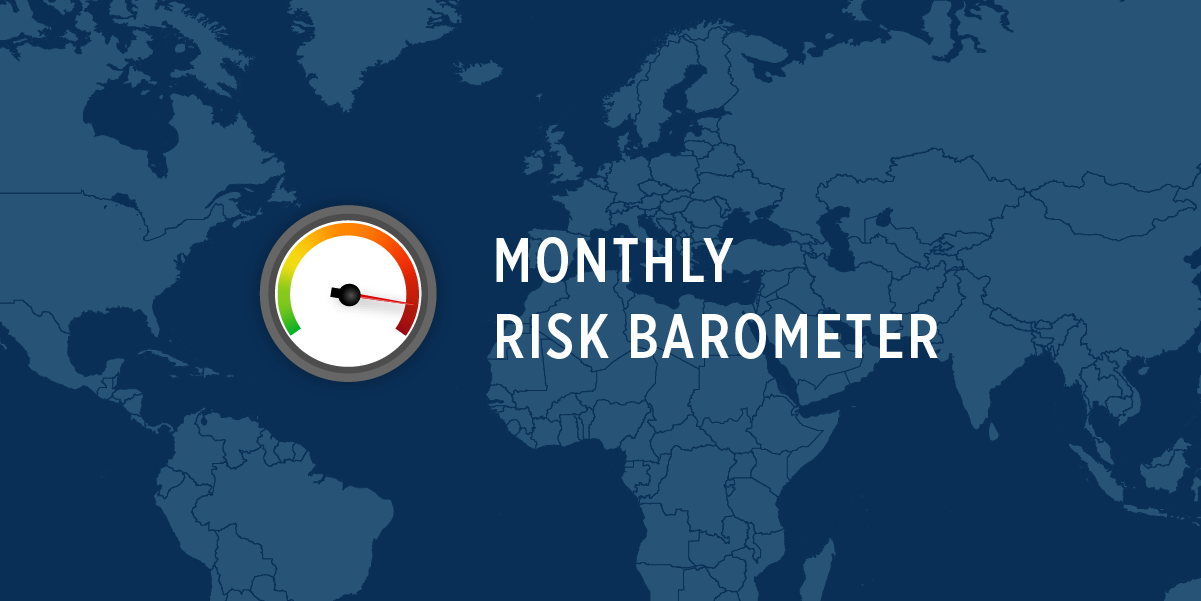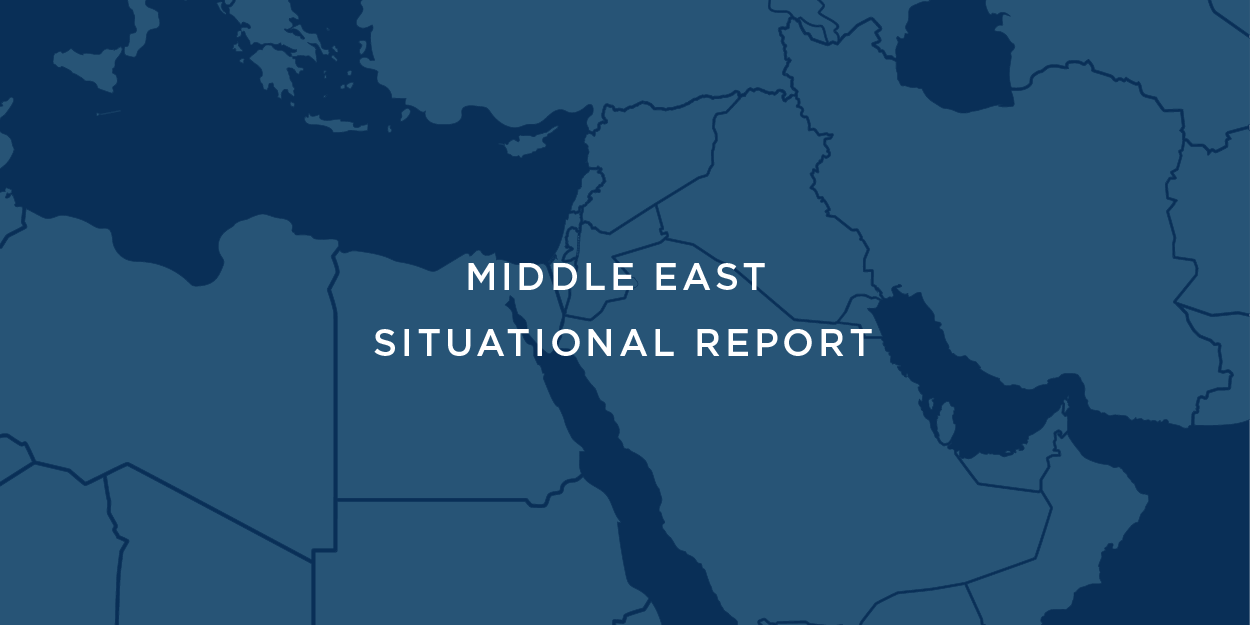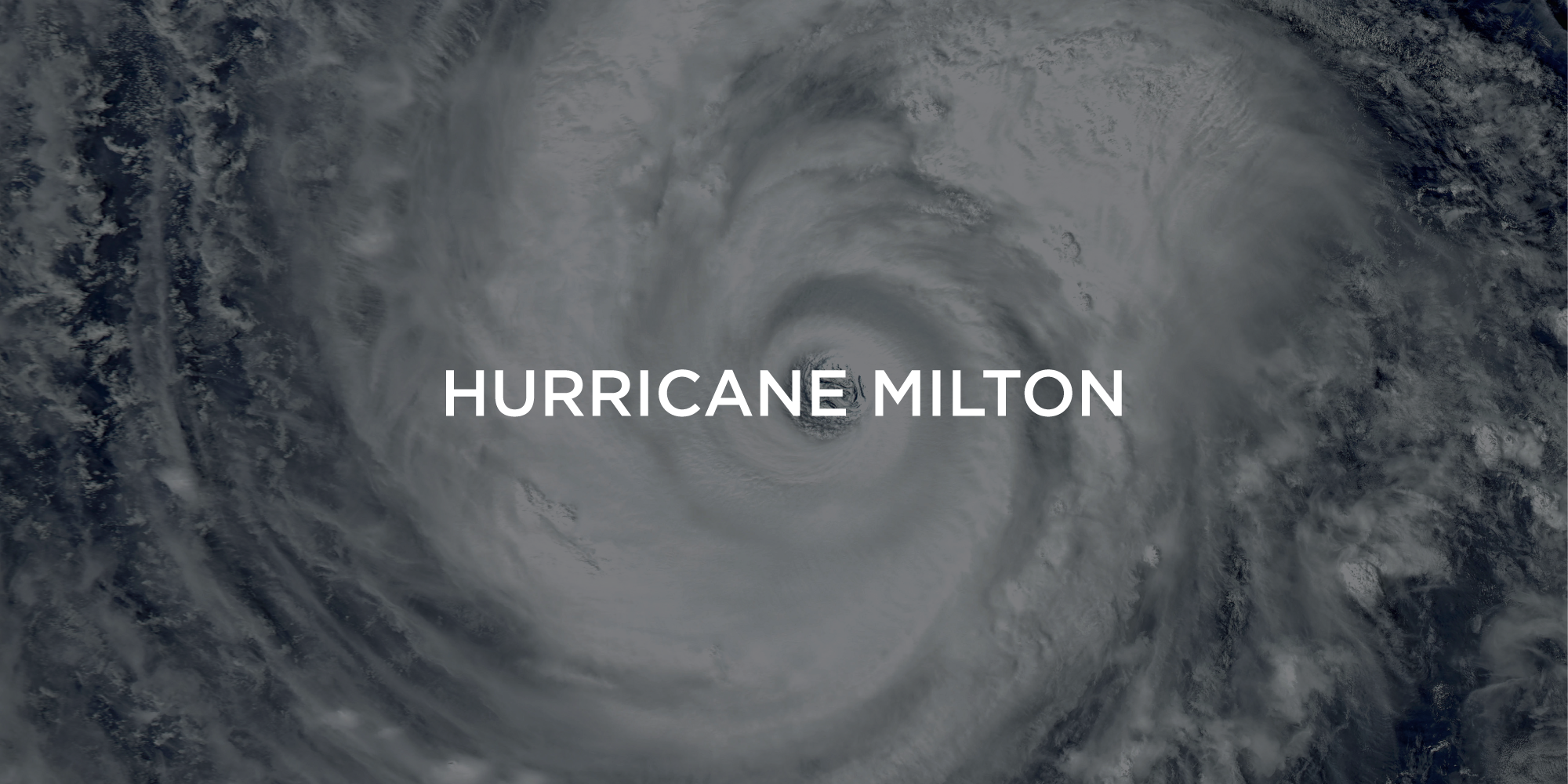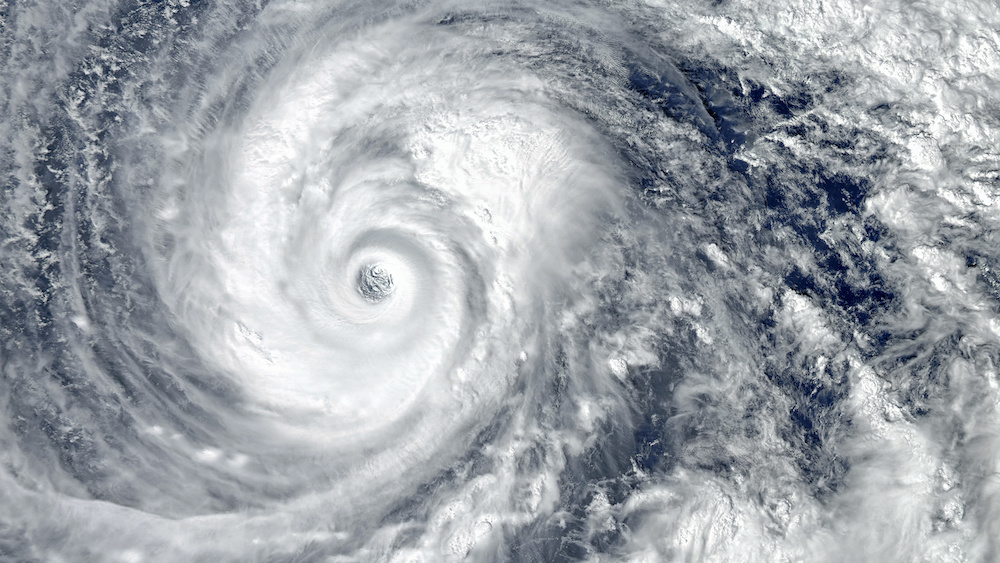Taiwan Strait | Marburg Virus
In Global Guardian's monthly Risk Barometer, our Intelligence Team highlights current global hotspots with the potential to impact your business operations and travel. Read below for analysis on the threats we are closely monitoring this month and click here to subscribe for regular intelligence updates.
Cross-Strait Tension Mounting Ahead of U.S. Election
On 14 October 2024, the Chinese People's Liberation Army (PLA) commenced Joint Sword 2024B, a 13-hour long exercise simulating a blockade of Taiwan. Joint Sword 2024B is the second drill this year and marks the fourth major PLA drill around Taiwan since August 2022. A chaotic presidential transition in the United States (U.S.) increases the likelihood that China’s next war game is not just demonstration but an opening act.
Over the last 4 years, Chinese military aircraft and vessels have entered Taiwan’s Air Defense Identification Zone (ADIZ) on a near-daily basis, with activity spiking during exercises. Joint Sword 2024B featured 153 aircraft, 14 naval vessels, and 12 Chinese Coast Guard (CCG) vessels and included sorties from the Liaoning aircraft carrier. The drills also took place closer to Taiwan's coast than previous exercises, featuring an expanded role for the Chinese Coast Guard. Joint Sword 2024B takes PLA activity around Taiwan one major step further by blurring the line between drill and blockade.
- PLA live fire drills can potentially lead to abrupt commercial flight cancellations, impacting travel.
- Global Guardian recommends that firms with exposure to East Asia plan for the possibility of a blockade or invasion of Taiwan in the coming 36 months. For more information on this topic see our 2024 Taiwan Shock Index.
Recent Events
- 26 October: U.S. approves USD $2 billion Taiwan air defense arms package to include three National Advanced Surface-to-Air Missile Systems (NASAMS). China condemned the sale and threatened countermeasures.
- 21 October: China holds live-fire drills near the Pingtan Islands in response to USS Higgins and Royal Canadian HMCS Vancouver’s transit through the Taiwan Strait on 20 October.
- 14 October: PLA launches Joint Sword 2024B around Taiwan in response to Taiwan President Lai’s National Day speech.
- 13 October: The Taiwan Ministry of National Defense signs formal purchase agreements to procure as many as 1,000 loitering drones from U.S. defense companies.
- 10 October: President Lai Ching-te Delivers Taiwan National Day Address.
Analysis
Joint Sword 2024B featured two additional coercive elements as compared to the previous three drills: surprise and sanctions. The flash exercise had no warning or disclosure of closed military zone locations, nor did the PLA state the end date or time. In parallel, Beijing sanctioned a Taiwanese lawmaker and billionaire Robert Tsao, as well as three U.S. defense firms and ten senior executives.
Joint Sword 2024B is part and parcel of China’s salami-cutting strategy. In this strategy, China carefully and teleologically maneuvers, disguising offensive actions as defensive, allowing it to secure a strategic edge incrementally. This tactic leaves its targets – all countries it neighbors at sea – with a difficult dilemma: slow attrition or rapid brinksmanship.
Looking Forward
China has now demonstrated to the international community, Taiwan, and the United States that it could effectively impose a maritime blockade of Taiwan at will. The Joint Sword Drills are steps in a long chain of events that may reach a breaking point in the coming 36 months. CIA Director William Burns has publicly stated that the intelligence community believes that President Xi Jinping has ordered the PLA to be ready to invade Taiwan by 2027.
Beijing can leverage many possible triggers to impose a blockade. These range from (but are not limited to:
- Domestic Taiwanese crises (political or typhoon-related)
- Delivery of strategic military assets (air defense systems, uncrewed surface vehicles, ATACMS)
- U.S.-China trade negotiations
- High-level Taiwan-U.S. bilateral meetings
- Formal changes to the America’s One China Policy or Taiwan Relations Act
Key TakeawaysThe stage is now set for an actual blockade of Taiwan at any time should Beijing make the decision. President Xi can exploit any future geopolitical crisis or pretext to conduct a flash exercise that turns into a blockade of Taiwan. |
Marburg Virus Outbreak in Rwanda: What Travelers Need to Know
The recent outbreak of Marburg virus disease (MVD) in Rwanda has raised concerns for travelers planning to visit the country. As of October 31, 2024, Rwanda has reported 65 confirmed cases, and 15 deaths related to this rare but severe hemorrhagic fever. Global Guardian Medical Director Dr. Shelly Weisenfeld notes that “with the memory of the Ebola virus and known similarities with Marburg, the WHO and CDC quickly collaborated in tracking the illness and investigating vaccine options." While the outbreak appears to be contained and the risk to most travelers remains low, it is crucial to stay informed and take necessary precautions.
Affected Areas
The outbreak has primarily affected several districts in Rwanda, including:
- Kigali (Nyarugenge, Kicukiro, and Gasabo districts)
- Kamonyi (Southern province)
- Nyagatare and Gatsibo (Eastern province)
- Rubavu (Western province)
- Most cases have been reported among healthcare workers in Kigali hospitals
Transmission and Symptoms
Marburg virus is typically spread through:
- Direct contact with bodily fluids of infected individuals
- Indirect contact with contaminated surfaces or materials
- Contact with infected animals, particularly fruit bats
Early symptoms of MVD include:
- High fever
- Severe headaches
- Muscle aches
- Diarrhea
- Nausea and vomiting
- Rash (usually on the chest)
Travel Precautions
If planning to travel to Rwanda, consider the following advice:
- Practice good hygiene: Wash your hands frequently or use hand sanitizers.
- Avoid contact with sick individuals: Steer clear of people showing symptoms of illness.
- Stay away from animals: Avoid contact with wild animals, especially bats and monkeys.
- Be cautious at funerals: Avoid direct contact with bodies during burial rituals.
- Monitor your health: Be aware of any symptoms and seek medical attention immediately if you feel unwell.
- Follow local guidelines: Adhere to any restrictions or preventive measures implemented by Rwandan authorities.
- Be prepared for health screenings: Expect temperature checks at ports of entry, hotels, and tourist sites.
Impact on Travel
While lockdown measures have been ruled out, travelers should be aware of the following:
- Gatherings of more than 50 people for funerals of Marburg victims are banned.
- Some establishments have shifted to remote working.
- Neighboring countries like Kenya and Uganda have implemented surveillance measures at entry points.
- The United States has announced health screening for inbound travelers from Rwanda.
Key TakeawaysWhile the Marburg outbreak is concerning, Rwanda's swift response and collaboration with international health organizations are encouraging. By staying informed and taking necessary precautions, travelers can minimize their risk while visiting Rwanda. Always consult with your healthcare provider and check for updated travel advisories before your trip. Remember, early detection and proper medical care significantly increase the chances of survival for those infected with Marburg virus. Stay vigilant, prioritize your health, and enjoy your travels responsibly. |







